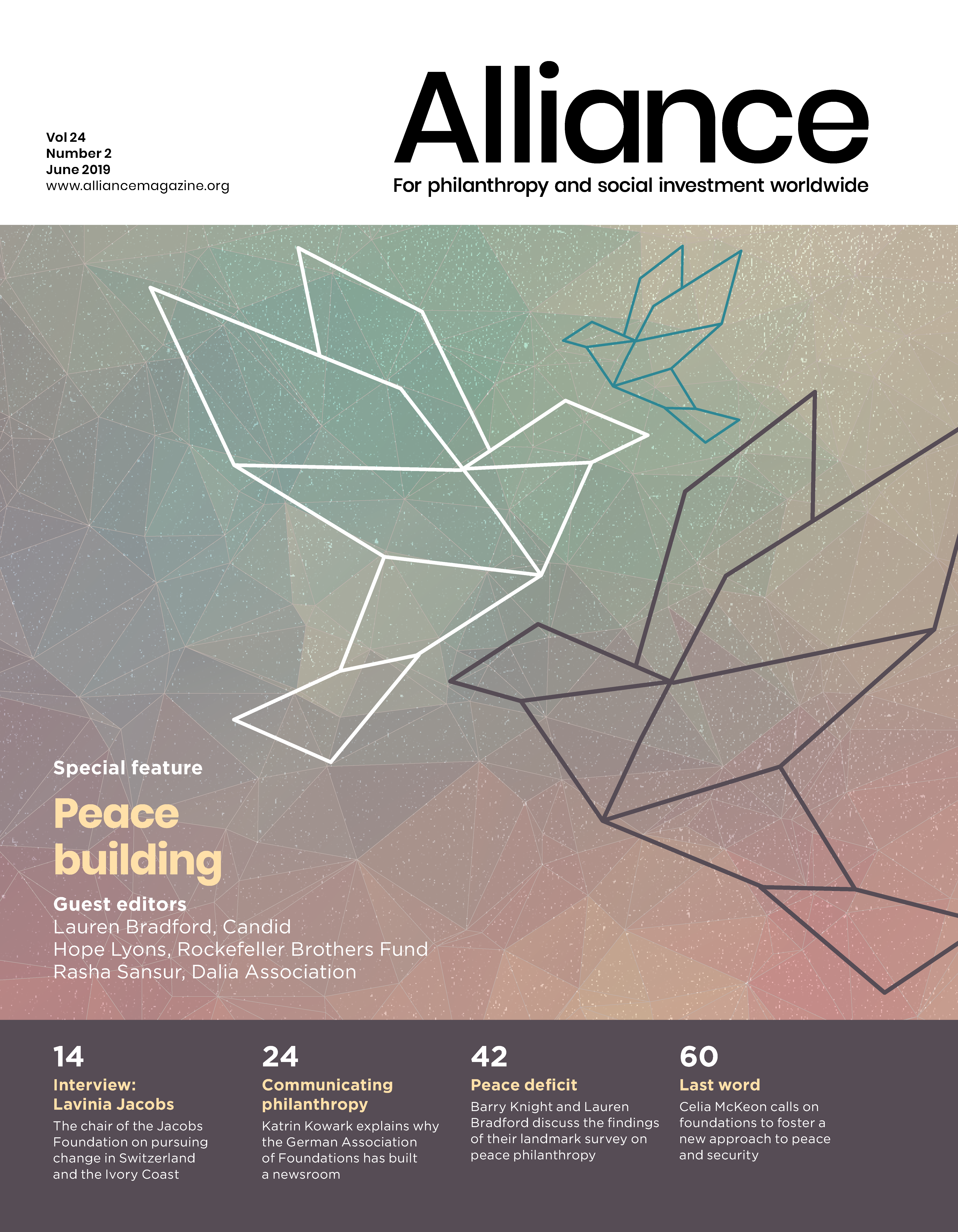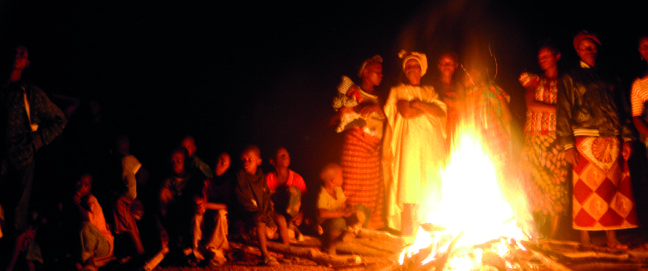Peace-building is sensitive work. Approaches to assessing it need to be equally sensitive, as Rockefeller Brothers Fund is discovering
Peace-building is one of three grantmaking themes of the Rockefeller Brothers Fund (RBF). The goal of our Peacebuilding programme is to advance just and durable peace. Launched in 2011, the programme builds upon the fund’s previous work on peace and security with a growing acknowledgement that, for enduring peace to take root, we needed to look beyond a traditional security focus and support a range of activities that create stable, inclusive societies.
Our approach to assessment has three main phases: ongoing monitoring, programme reviews and impact assessments.
We refined our approach to impact assessment in 2012 with the aim of creating a process rigorous enough to discern impact but nimble enough to appreciate the nature of social change, which is about changing attitudes, narratives, and behaviour. We also sought an approach that was adaptable enough to work across the different programmatic and geographic areas we fund in.
The RBF defines impact as a contribution to social change, through shifts in understanding, behaviour, capacity, public engagement and public policy. Each programme has a goal based on our long-term aspiration (in the case of peace-building, see above), and strategies comprised of specific actions that we will fund in support of this goal. We also develop indicators of progress which identify anticipated progress in the field to which grantee work could meaningfully contribute. In other words, what would success look like?
Our approach to assessment has three main phases: ongoing monitoring, programme reviews (every 3-5 years) and impact assessments (every 5-10 years). Staff are regularly in contact with grantees to understand how work is progressing and what challenges they are facing. Reporting requirements are as light as possible – we ask how grant funds were spent, and four questions about how the work is going and what grantees are learning. If a grantee has produced narrative reports for another funder that answer these questions, we generally will accept that.
The challenges addressed by our grantmaking programmes are widespread and longstanding, shaped by an ecosystem of people and circumstances.
Funders need to understand the context in which they are funding, and grantee relationships are key to this. Because of this, responses to a question in our latest round of Center for Effective Philanthropy grantee surveys – ‘How comfortable are you approaching your programme officer if a problem arises?’ – are especially important, particularly in peace-building work, where context and circumstances can change in a heartbeat. We need our grantees to be comfortable coming to us if things are not going as planned. The only way to ensure that is to develop relationships with grantees that are driven less by transactions and more by trust.
Our board and staff have also worked to understand that it is impossible to attribute successes or failures directly to our funding or to the work of our grantees. The challenges addressed by our grantmaking programmes are widespread and longstanding, shaped by an ecosystem of people and circumstances. So while the programme reviews and impact assessments are the major components of our approach to evaluation, we also review indicators of progress across the field annually. This approach has added significantly to both board and staff understanding of our work and grantees in context, and to our understanding that change takes time and is the product of a vast combination of actions and actors.
The fund undertook a review of the Peacebuilding programme in 2018. The review underscored the importance of working at multiple levels and connecting them through network-building and delegations of grantees to decision-makers, donors and media. It also highlighted that some of the most significant impact of our work has been from non-grantmaking activities, including convenings that have contributed to field-building and fresh approaches to conflict resolution, reminding us that the support grantmakers can provide extends beyond funding itself.
Building durable peace is a long-term process involving many actors. Approaches to grantmaking and to evaluation of peace philanthropy must therefore take a long view. Funders must also remain humble about their role within a complex ecosystem to avoid becoming prematurely discouraged or missing the signs of progress.
Hope Lyons is director of Program Management, Rockefeller Brothers Fund.
Email: hlyons@rbf.org
Twitter: @hopelyons







Comments (0)